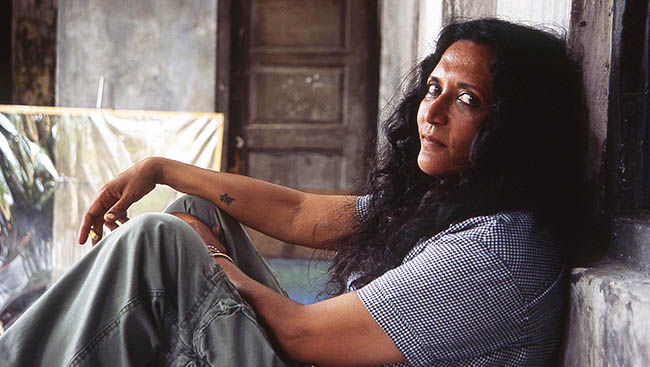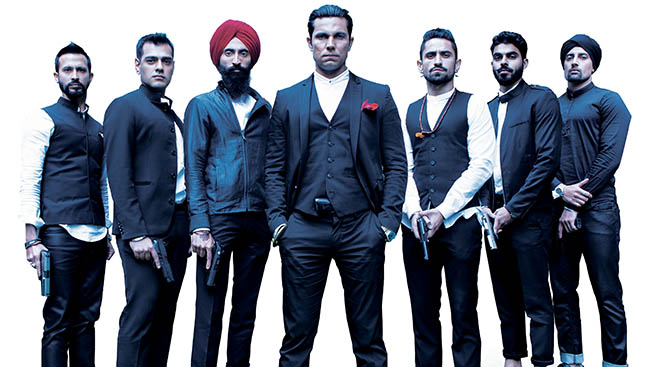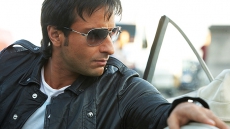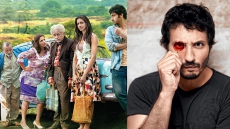Gangs, gunplay, sociopaths in suits, Paul Gross in a ponytail. Deepa Mehta goes deep in her next film.
While it never really went away, gang violence in Surrey reached its peak at the end of the past decade and beginning of this one. For a few months it seemed every week someone would get gunned down in drug-fueled turf wars.
In what it seems like a departure from her gentler, more sentimental output, writer/director Deepa Mehta goes deep into the subject in Beeba Boys.
While never abandoning its cultural roots, the film is reminiscent of Martin Scorsese’s most crime-soaked filmography, with a drop of Scarface and Hong Kong noir Infernal Affairs.
While inspired by real events – some may recognize known criminals photobombing camera crews – the film is also interested in talking about the immigrant experience from a fresh point of view. Mehta spent almost a year doing research on gang warfare for the script, mostly by reading non-fiction and the Vancouver Sun, but also Daaku.
“I met a former gangster”, reveals Mehta, “that’s now an immigration lawyer. According to him, this is a phenomenon very culturally specific. This is not the Mafia, the Triads or the Hell’s Angels. Punjabi gangsters are very rooted in their culture. The boys live at home with their parents and they have strong ties with their mothers. Can you imagine a Hell’s Angel mother feeding her son? I don’t think so.”
The Beeba Boys in question are a group of sharply-dressed 20-somethings of Indian descent. The leader, Jeet, is simultaneously a loving family man, a proud Sikh, and the most coldblooded gangster this side of the Fraser River. Jeet is a thriving drugs and ammo trafficker, so much so, he wants to take control of the entire area. In order to succeed, he must take down Robbie Grewal, a veteran gangster who is as tactical as Jeet is hot-headed.
The wild card in this conflict is Nep, the newest member of the Beeba Boys, who may have an agenda of his own. The game they play is uniquely dangerous. Punjabi gangsters life expectancy doesn’t go beyond 30.

MEET THE BOYS
For the main roles, Mehta went with Bollywood up-and-comer Randeep Hooda (previously seen antagonizing Salman Khan in Kick) and local credit Ali Momen (The L.A. Complex). The supporting cast is filled with recognizable names: Wes Anderson’s favourite Waris Ahluwalia as Jeet’s right hand, Inception’s Dileep Rao as the proverbial cop aiming to take Jeet down and Canadian film staple Paul Gross (Men with Brooms) as an sleazy associate.
While there have been documentaries dealing with gang violence southeast of Metro Vancouver, Beeba Boys is the first fictionalized feature to tackle thesubject. While the boys look straight out of GQ, the violence is not glamourized in any form: It’s ugly and messy. In Beeba Boys, every death counts and reverberates through the rest of the film.
“I love the genre”, confesses Mehta. “The Godfather, GoodFellas, Reservoir Dogs, Infernal Affairs… They are all in my consciousness. While Beeba Boys is a genre film, it’s also different because it’s Indo-Canadian. It hasn’t been done before.”
The structure of Beeba Boys is somewhat unusual. For the first third of the film, theaudience is led to believe Jeet, the classic anti-hero, is the one to follow. From his shadow emerges the more morally-inclined Nep, who ultimately becomes the one who takes us all the way to the end.

THE IMMIGRANT EXPERIENCE
Deepa Mehta’s last three films are aesthetically quite different from each other. The underrated Heaven on Earth (2008) was shot with in 16mm, a handheld camera and black-and-white. The adaptation of Salman Rushdie’s Midnight’s Children (2012) was a glossy production filled with warm tones and curated compositions. Beeba Boys is a more dynamic piece, modern-looking and sharply edited.
“Every film dictates its own style. Heaven on Earth was intimate; it had to look as if you were in somebody’s house. Beeba Boys was shot entirely with steadycam, because I wanted to have a lot of movement, like the boys themselves.”
That said, Mehta would be the first to tell you the film is more closely related to the rest of her filmography than it looks likeat first sight. “Two of the elements all my films have in common are identity and immigration. That’s at the heart of Beeba Boys: It’s so important for them to be “seen” in a white-dominant society: How does a marginalized group gets recognized in this context?
When you rob people of their complexity, it becomes very difficult.”
Beyond all the thorny subjects Mehta tackled on Beeba Boys, she acknowledges having the best time making the action-packed drama: “If I don’t learn anything in the process, it’s boring. With Beeba Boys I learned about guns, I learned about
cocaine, about the mothers and children of gangsters, so much. It was fantastic.”




